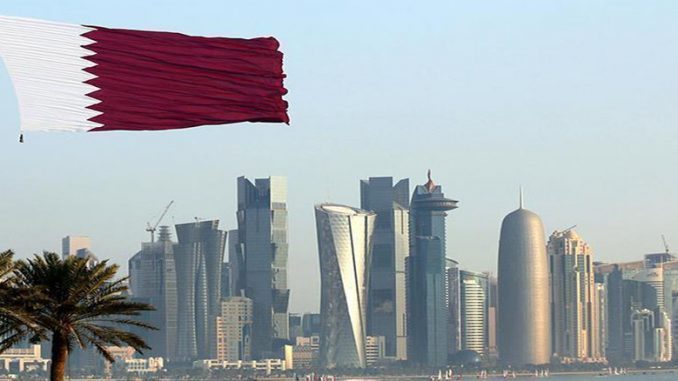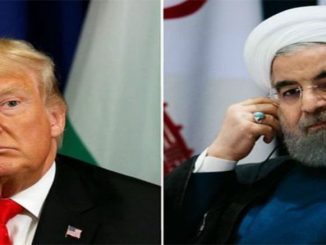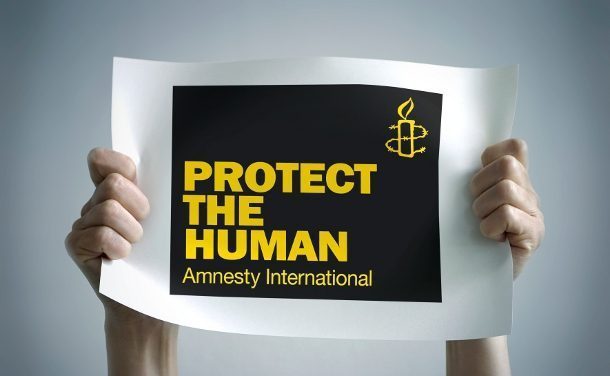
‘Qatar, you are not alone’, group chants in Taksim square amid ongoing diplomatic rift in Arab world
A group of Turkish citizens on Wednesday took to Istanbul’s Taksim Square to protest Qatar’s isolation in the face of several states in the Arab world severing ties with Doha.
“Qatar, you are not alone,” the group chanted, before driving to Uskudar district in a convoy.
President of non-profit Qatar’s Friends Group, Bekir Cantemir in a speech drew parallels between the 2013 coup in Egypt, the 2016 coup attempt in Turkey and what is happening in Qatar, accusing foreign powers of trying to destabilize the region.
“The coup was successful in Egypt; the Egyptian people could not get themselves out of the international intrigues… We gathered here against the moves of alienation and subversion of Qatar by plots, lies and defamation… Get your hands off Qatar. Your plans have been exposed,” Cantemir said.
#KatarYalnızDeğildir (Qatar is not alone) and #TurkeywithQatar Twitter hashtags went viral on social media in both Turkish and English in a bid to support Doha amid the ongoing rift.
On Wednesday, Turkey’s parliament ratified two deals on deploying troops in Qatar and training the nation’s gendarmerie forces.
The deal on deploying troops on Qatari soil to improve the country’s army and boost military cooperation was signed in April 2016, in the Gulf country’s capital Doha.
On Monday, five Arab countries — Saudi Arabia, Egypt, the United Arab Emirates, Bahrain and Yemen — cut ties with Qatar, accusing Doha of supporting terrorism.
Qatar denied the accusations, calling the move “unjustified”.
The escalation came two weeks after the website of Qatar’s official news agency was allegedly hacked by unknown individuals who reportedly published statements attributed to the country’s Emir, Sheikh Tamim bin Hamad al-Thani.
The incident triggered a diplomatic row between Qatar and its neighbors.
What are the reasons behind deploying troops to Qatari?
Turkish analysts interpreted the move as “an apparent show of support for Qatar”. “This indeed suggests that Turkey sees its defense ties with Qatar as an indispensable pillar of its strategic posture in the region,” Can Kasapoglu, a defense analyst from Turkey’s EDAM said that.
“It also shows that Ankara would not drastically alter its long-term vision for regional fluctuations.”
“Turkey has had a base and soldiers in Qatar for a while,” Kadir Ustun, the executive director of the SETA Foundation in Washington, DC, explained. “Increasing Turkish presence there at this point might be an attempt to reassure Qatar.” “The military base in Qatar is an important power projection asset for Turkey,” said Kasapoglu. “Turkey has always considered Qatar an important strategic ally in the region, and it is using this base to demonstrate this view.”
Yet analysts added that it is important not to read Turkey’s decision to deploy troops in to Qatar as “picking a side” in the spat that rocked the Gulf.
“Turkey’s military base in Qatar has always been, and still is, a symbolic gesture and nothing more,” said Atilla Yesilada, a political analyst with Istanbul’s Global Source Partners.
“While Turkey values its partnership with Qatar, and does not approve the foreign policy vision Saudi Arabia is trying to enforce on the small but influential emirate, it is also not willing to – and can not afford to – pick a fight with Riyadh”.
“The ratification of the military treaties is not an anti-Saudi move at all,” Kasapoglu added. “Turkey still sticks to ‘I don’t want problems between my two good friends’ policy.
“Yet, although this is not an anti-Saudi position, it is a pro-Qatari one for sure. Ankara prioritised its geopolitical perspective, and showed that it holds its military presence [in Qatar] above the recent diplomatic crisis.”
Similar strategy “of balance”
Their partnership in regional politics gained further strength after Qatari Emir Sheikh Tamim bin Hamad Al Thani showed strong support for the Turkish government and President Recep Tayyip Erdogan during and after last July’s failed coup attempt.
Qatar and Turkey are also following a similar strategy “of balance” in their relations with Iran. Analysts explained that at the moment Saudi Arabia and the UAE, with Donald Trump’s support and encouragement, are trying to form a unified front to isolate Iran completely.
Qatar, as a result of its refusal to follow a hawkish strategy against the Islamic Republic, is being perceived as the “weakest link” in this anti-Iran Gulf alliance, analysts said.
urkey, with its strong trade links to Iran and apparent unwillingness to have a confrontation with its neighbour, is supporting Doha’s appoach to the Iranian threat.
“Riyadh is viewing Iran as an existential threat, yet Qatar, much like Turkey, has been following a rather complicated and multilayered strategy against Iran,” said Yesilada.
“Turkey is in loggerheads with Iran in Iraq and Syria, but it is also continuing its growing trade relationship with this neighbour – and this compartmentalised relationship is making Riyadh question the strength of Turkey’s position in the alliance that is forming against Iran in the Middle East”.
“Their attitude towards Iran is putting Qatar and Turkey in the same camp, once again.”
Analysts explained that Turkey would do everything it can to resist the US and Saudi pressure to turn its historic rivalry with Iran into enmity. “Turkey and Iran had long been compertmentalising their relations,” Kasapoglu explained.
“They faced each other in Iraq and Syria, but this did not stop the Iranian Foreign Minister from visiting Turkey, or affected the two countries’ trade relations.”
“Turkey agrees to many aspects of Qatar’s foreign policy vision, and President Erdogan made it clear that he does not agree with the accusations Riyadh directed at Qatar,” Yesilada said. “On subjects like Palestine, Egypt, Hamas and Muslim Brotherhood, two countries are definitely on the same page.”
“But this does not mean Turkey is willing to jeopardise its relations with Saudi Arabia or the UAE.



